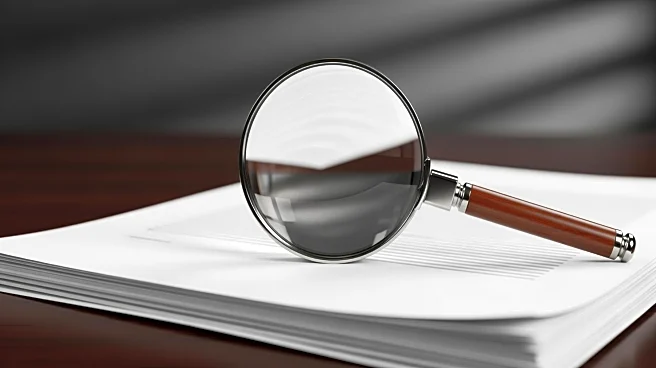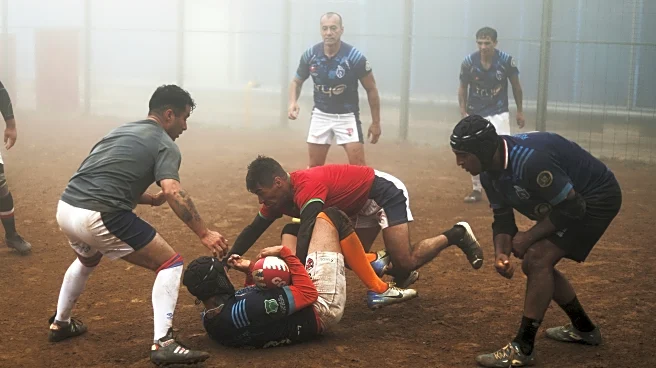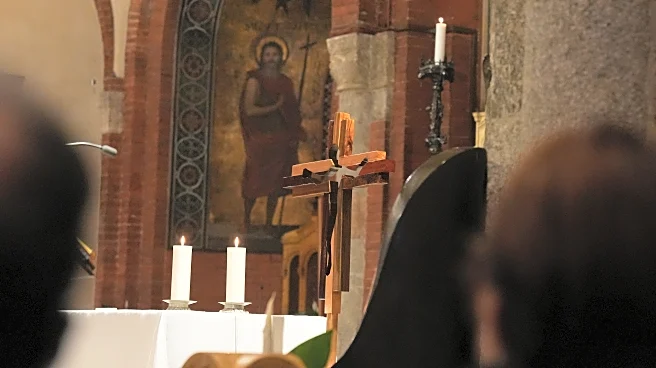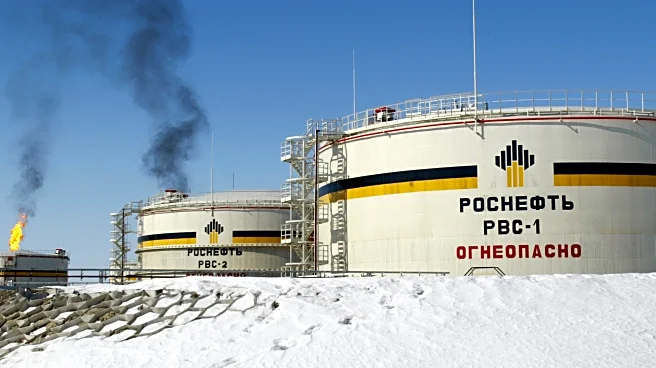What's Happening?
Faruqi & Faruqi, LLP, a national securities law firm, is investigating potential claims against KBR, Inc. for alleged securities violations. The firm is encouraging investors who suffered losses between
May 6, 2025, and June 19, 2025, to contact them regarding their legal options. The investigation centers on claims that KBR and its executives made false or misleading statements about the company's partnership with HomeSafe Alliance, which was terminated by the U.S. Department of Defense's Transportation Command. This termination led to a significant drop in KBR's stock price, falling 7.29% on June 20, 2025, and further declining in subsequent days.
Why It's Important?
The investigation by Faruqi & Faruqi highlights potential legal and financial repercussions for KBR, a major player in the engineering and construction industry. If the allegations are proven, KBR could face substantial financial liabilities and reputational damage. The case underscores the importance of transparency and accurate reporting in corporate communications, especially concerning government contracts. Investors who suffered losses may seek compensation through the class action, impacting KBR's financial stability and market perception. The outcome of this investigation could set precedents for how companies manage and disclose information about government partnerships.
What's Next?
Investors have until November 18, 2025, to seek the role of lead plaintiff in the class action lawsuit. The court-appointed lead plaintiff will oversee the litigation on behalf of the class, potentially influencing the direction and outcome of the case. KBR's response to the allegations and its efforts to mitigate legal risks will be closely watched by stakeholders. The company's future communications and contract management strategies may be scrutinized to prevent similar issues. Legal proceedings could extend over several months, with potential settlements or judgments affecting KBR's financial outlook.
Beyond the Headlines
The legal challenges faced by KBR may prompt broader discussions about corporate governance and accountability in the engineering and construction sector. The case could influence regulatory policies regarding government contracts and corporate disclosures. Ethical considerations about transparency and investor protection are likely to be debated, potentially leading to reforms in how companies report their business operations and partnerships. The situation may also affect investor confidence in companies with significant government contracts, emphasizing the need for robust compliance and risk management frameworks.










